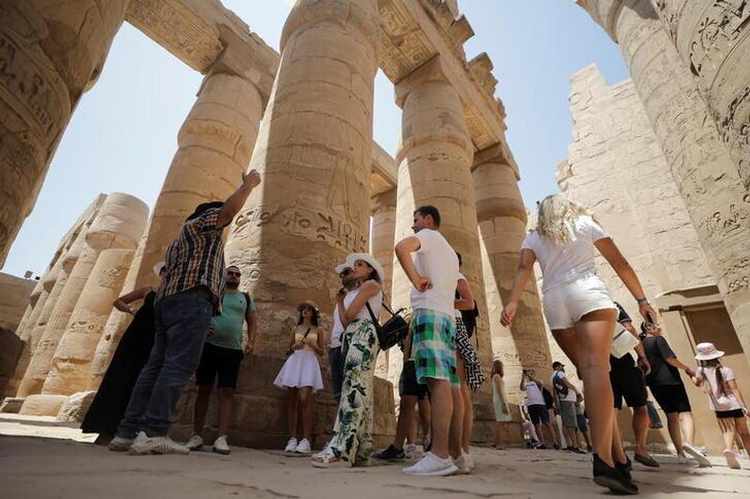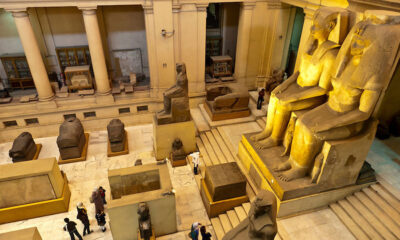Egypt
How Can Egypt’s Tourism Sector Cope with the Global Market?

By Mohamed Abdelhakim
Egypt is ranked as one of the world’s top destinations in cultural tourism as it has monuments, collectibles, and artifacts that document human civilization, starting with the time of ancient Egyptians, passing through the Greco-Roman, the Coptic, and the Islamic civilizations, up to the modern era.
The Egyptian heritage is not merely confined to the tangible heritage, such as monuments and artifacts, but also includes intangible heritage, such as art, culture, beliefs, and spirituality, reflecting the unique Egyptian identity which has been created over the years.
The Challenge
Over many decades, Egypt has relied upon its heritage to attract millions of tourists and visitors to its diverse and majestic monuments. However, with the decline in the movement of cultural tourism globally and the lack of interested travelers around the world to visit archeological sites and museums in favor of beach and leisure tourism and shopping tourism, Egypt had to keep pace with these changes and with the global supply of modified or emerging tourism programs and products that meet international demand in order to preserve its chances of competition and to increase its share of the total global tourism movement. This is also in line with the state’s desire to increase its resources from this sector and to rely on its income to build a strong economy worthy of the new republic.
The global tourism product, according to the World Tourism Organization, contains more than sixty types of tourism that change their order in terms of tourist arrivals around the world permanently, rapidly, and irregularly. But, it can be studied and its pattern can be predicted according to many demographic, social, and other indicators. Based on the prevailing patterns at the present time and expectations in the short and medium term, government agencies, coupled with the private sector, and international organizations adopt their strategies and develop their operational plans to achieve their goals in this global market.
Steps towards Tourism Promotion
Indeed, the Egyptian government has begun implementing the previously mentioned policy, and it now has a strategy to promote tourism in Egypt based on studies and statistics that have been carefully compiled and analyzed, while linking them to national and international goals for sustainable development. Perhaps, the most prominent executive steps of this strategy are the development of new types of tourism concerning the Egyptian product, such as sustainable tourism, exhibition tourism, yacht tourism, and religious tourism represented by the “Path of the Holy Family Program,” in addition to integrating cultural tourism programs and beach tourism depending on the construction revolution and remarkable progress. This is represented in the infrastructure of a network of roads and facilities serving all sectors of the state, including the tourism and travel sector, and the state’s tendency to link the rich Nile Valley with archeological sites, beaches, and nearby tourist resorts, with a modern transportation network worthy of the service to be provided and economic airlines that encourage tourists and travelers to use them.
As for the most prominent and most important element in the tourism system, which is the human factor, it must be reconsidered as a whole. As hospitality and dealing with tourists or local visitors require a cultural and awareness movement for all those involved in the sector, this begins with developing educational curricula for graduates nominated to work in the sector; providing intensive training for those actually working in the sector, and issuing licenses that allow only accredited professionals to deal with tourists after they are included in a unified database. This is under the condition that all this system goes through continuous evaluation and ends with the principle of reward for the committed and punishment for the violators.
In conclusion, it is worth noting that the Egyptian tourism sector faces many local and international challenges that require flexibility and speed in dealing with them in order to achieve the desired goals in this vital sector.










